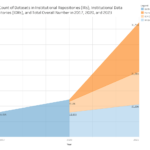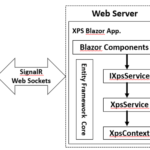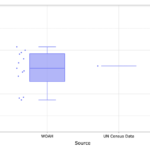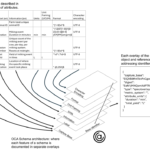

Climate change will lead to wetter US winters, modeling study finds
Most Americans can expect wetter winters in the future due to global warming, according to a new study led by a University of Illinois Chicago scientist.
Using climate models to investigate how winter precipitation in the United States will change by the end of the 21st century, a team led by Akintomide Akinsanola found overall winter precipitation and extreme weather events will increase across most of the country.
New food early warning systems boost Fiji’s disaster preparedness amid growing climate risks
Approximately 171,611 Fijians in the Rewa Delta, Naitasiri, and parts of Tailevu will now benefit from 17 newly installed Flood Early Warning Systems. This advanced network of four rainfall stations, seven water level stations, and six warning posts will significantly enhance Fiji’s capacity to predict floods and execute timely evacuations, reducing the devastating impact of natural disasters on local communities.
The new warning system’s launch coincides perfectly with the Coalition Government’s recently unveiled National Development Plan, which aims to empower Fijians and create a more resilient nation and comes at a critical time for the country, which is facing increasing risks from climate change.
Research shows heat, drought and fire risk are increasing in South America
The number of days per year that are simultaneously extremely hot, dry, and have a high fire risk have as much as tripled since 1970 in some parts of South America.
South America is warming at a similar rate to the global average. However, some regions of the subcontinent are more at risk of the co-occurrence of multiple climate extremes. These compound extremes can have amplified impacts on ecosystems, economy, and human health. The authors additionally found that the likelihood of the compound conditions occurring on a regional basis was affected by the El Niño-Southern Oscillation. During the warm El Niño phase, fire risk increased in the northern Amazon region, while the cooler La Niña phase led to increased fire risk in central South America.
How to fix funding bottlenecks and pave the way for locally led adaptation
A new survey explores the operational bottlenecks preventing local organisations from accessing climate adaptation funding. As the UN General Assembly approaches, IIED’s May Thazin Aung and BRAC’s Sousan Suha share the survey’s findings and explains how funders can smooth the way for locally led adaptation.
Three new regions – Assam (India), Louga (Senegal), and Pernambuco (Brazil) – have joined the Race to Resilience campaign through RegionsAdapt, committing to enhance climate resilience. Discover how these areas are empowering local communities, from rural farming to coastal restoration, to protect their environments and create sustainable futures.
How satellites are boosting climate resilience of EU cities
Our cities are home to the vast majority of Europeans, but they are under pressure from the complexities of climate change and rapid urbanisation. The EU-funded CURE project leveraged the power of Earth Observation satellites to address these issues, aiming to create safer, more sustainable cities for EU citizens.
One of the biggest hurdles in sustainable urban planning has been the lack of direct access to environmental data at a local scale. CURE’s efforts aimed to fix this problem by taking advantage of the vast amount of information collected by Copernicus, the Earth Observation (EO) component of the EU Space Programme.

Scaling Climate Finance for Locally-Led Adaptation
As the frequency and impacts of climate events increase, demand for adaptation at the local level becomes urgent. The adaptation finance received from developing and least developed countries is estimated to be less than USD 25 billion per year, which is exponentially less than the required amount of USD 215 billion per year. Further, the evidence indicates that less than 10% of global climate finance reaches the local level. Local communities lack the institutional capacity, financial tools, and knowledge networks necessary to secure adaptation finance. Complex application procedures, limited funding availability, and unequal distribution exacerbate the challenge. This highlights the need for developing innovative approaches to enhance access to adaptation finance at the local level in the Global South.
Economic and non-economic loss and damage: a harmful dichotomy?
Loss and damage is treated as comprising separate ‘economic’ and ‘non-economic’ dimensions in research and policy. While this has contributed to greater awareness and visibility of non-economic values, our empirical insights show that the two are inextricably linked and that research aimed at informing policy must be better attuned to the multifaceted and cascading nature of loss and damage.
While the rain was extremely heavy in many locations, the extent of the event, stretching across many countries, was exceptional. Almost two million people were directly affected by the flooding caused by the extreme rainfall (blue News, 2024). The most severe impacts in urban areas were in the Polish-Czech border region and Austria (The Guardian, 2024). At the time of writing at least 24 people lost their lives (The Guardian, 2024; BNN, 2024; CBS, 2024) with several persons still missing several days after the event in Czechia (DW, 2024). All countries were affected by power cuts, leading to schools and factories closing as well as hospitals.
The ‘Regional Guidelines on Protection and Assistance to Persons Displaced across Borders and Migrants in Countries Affected by Natural Disasters’ (hereinafter the Guidelines) aim to improve institutional capacity in the humanitarian response to the challenges of displacement due to disasters.
How humans are affecting the Northern Hemisphere’s wind patterns
Part of the problem is that the Earth’s air circulation systems, which help spread and disperse moisture and heat throughout the world, have been weakening over the years. However, the exact reasons for this weakening have eluded researchers.
Now, in two studies led by Dr. Rei Chemke of the Weizmann Institute of Science, researchers have managed to crack this mystery: Human activity is what has been making the air circulation systems weaker.
Both studies focused on the wind patterns that together act as a vital network through which wind-borne heat and moisture flow throughout the world. Forming a major part of this network are storm tracks, high-pressure and low-pressure weather systems that flow from west to east.
Reducing floodplain development doesn’t need to be complex, say researchers
A paper, titled “How local governments avoid floodplain development through consistent implementation of routine municipal ordinances, plans, and programs,” published in Oxford Open Climate Change uncovers evidence suggesting that, contrary to expectations, most U.S. cities are not doing too badly in avoiding development in areas prone to flooding, and those that are effective appear to be applying existing tools and strategies well, rather than doing anything particularly novel.

Disaster Research Days 2024: shaping the future of science and research for disaster risk reduction
DG HOME is pleased to announce a new CERIS event: Disaster Research Days 2024, which will be held in Vienna on 8-10 October 2024 with a focus on Shaping the Future of Science and Research for Disaster Risk Reduction!
The aim is to foster interaction among science and research and disaster risk reduction policies, through dialogues involving scientists, practitioners, risk managers, policymakers, and local communities. The event will showcase the latest research findings and innovative solutions aimed at enhancing societal resilience. Participants will engage in knowledge-sharing, tool development, and strategy formulation, addressing the multifaceted challenges of disaster risk reduction
Asia-Pacific Ministerial Conference on Disaster Risk Reduction
The Government of the Philippines partners with the United Nations Office for Disaster Risk Reduction (UNDRR) to host the next Asia-Pacific Ministerial Conference on Disaster Risk Reduction (APMCDRR) from 14 to 18 October 2024 at the Philippine International Convention Center in Manila (18 October is reserved for an optional site visit). The APMCDRR is the main platform in Asia and the Pacific to monitor, review and enhance cooperation for the implementation of the Sendai Framework for Disaster Risk Reduction 2015-2030 at the regional level.
MCR2030 Disaster Risk Financing Roundtable – Financing a transition towards climate resilience
The MCR2030 Disaster Risk Financing Roundtable will kick-off the first session at the Resilience Investment and Financing Forum segment on day two of the European Urban Resilience Forum 2023.
The Roundtable will offer a space for discussion and exchange of experiences from cities, municipalities, financial service providers, investors, and stakeholders on the mobilization of funding for disaster resilience plans and projects.
Bonn Technical Forum 2024 on Non-Economic Losses- Bonn, Germany 22- 23 October
Both the Sendai Framework for Disaster Risk Reduction and the Paris Agreement emphasize the importance of considering these non-economic aspects to enhance understanding, action, and support for loss and damage associated with climate change and disaster. The Sendai Framework includes explicit references to ecosystems, cultural heritage, traditional and indigenous knowledge, territory, health and other key factors influencing both vulnerability and resilience.





























































